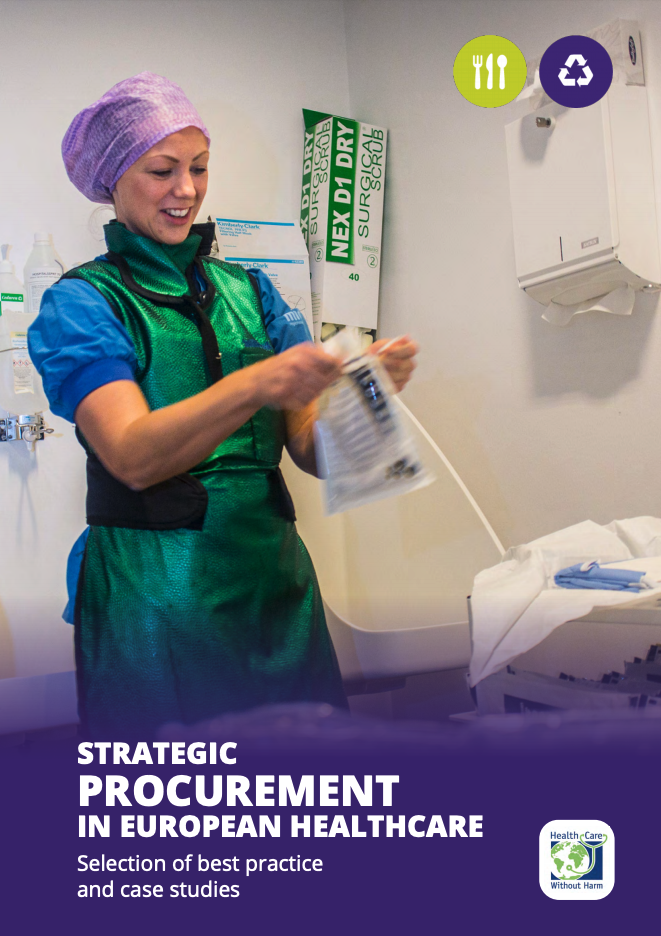The European healthcare sector has significant purchasing power, which can be leveraged to drive policies and markets towards more ethically produced, healthy, and sustainable products and services. Healthcare accounts for approximately half of public spending in the EU - 14% of annual EU GDP in total; healthcare procurement, therefore, presents a strategic opportunity to promote sustainability.

In this latest report, Strategic procurement in European healthcare, we have compiled procurement case studies from across the HCWH Europe network, covering a variety of products and services such as food, plastics, and mobility. These case studies also offer a varied perspective of initiatives from differing levels of administration – from the individual hospital or regional level to national legislative efforts or international collaboration.
In the report, case studies from Vienna, Catalonia, Sweden, The Netherlands, and more all showcase progressive innovation, and a more holistic and strategic approach to procurement, as well as highlighting the challenges and opportunities for the future.
- The Dutch Green Deal applied to the healthcare sector provides a framework to reduce the carbon and environmental footprint of the entire sector through multi-stakeholder partnership and innovations like circular procurement.
- Aarhus University Hospital offers an example of circular procurement applied to the healthcare sector and demonstrates that it is not necessarily more expensive to set recycling and environmental criteria in tenders.
- The Catalan Region makes use of Pre-Commercial Procurement procedures to research and develop innovative solutions that contribute to societal unmet needs like AMR. Learn more in the report.
- The mission of care and prevention at the University Hospital of Grenoble is an excellent example in responding to one of our major public health challenges: air pollution. In 2003, the Hospital introduced a Corporate Transport Plan in collaboration with multiple socio-economic actors in the territory.
- In Sweden, harmonising sustainability criteria amongst different public authorities is important to reduce administrative burden and give a clear signal to the market through specialised collaborative networks that share expertise and tools. Read more in the report and learn about their ambitions to scale up these efforts to a European or even global level.
Following the recent publication of EU GPP criteria for food, catering services and vending machines, the area of food procurement has also been highlighted in the report, with example of current public purchasing practices in Austria, Iceland and Spain. Procurement can be leveraged to reduce the environmental impacts from the supply chain of food and catering services in healthcare.